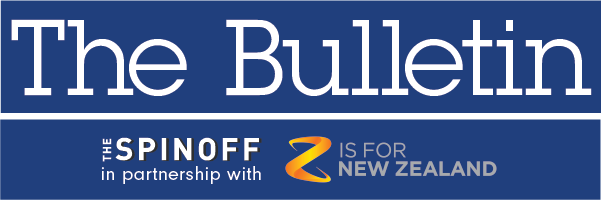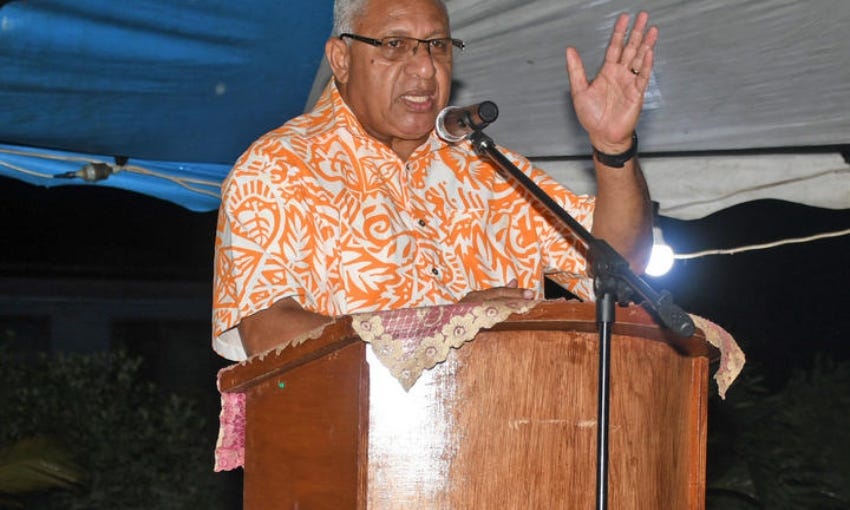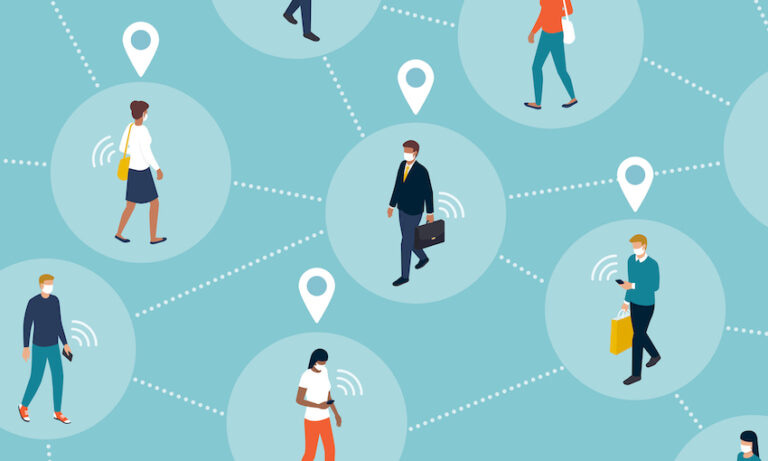How Covid-19 has affected the Pacific
The case numbers are still relatively small, but the economic toll has been devastating

Good morning and welcome to The Bulletin for Wednesday 29 April, by Alex Braae for The Spinoff. Presented in partnership with Z Energy.
In today’s edition: Spotlight on the Pacific and Covid-19, health minister in yet another spot of bother, and schools reopening to very limited numbers.

Image: Fiji PM Frank Bainimarama (File photo, Radio NZ)
For a lead today, I thought it would be useful to check in on our nation's neighbours in the Pacific, and how they are faring through Covid-19. There isn't a single unifying experience of course, with different countries taking different measures and seeing different outcomes. But there have been some common themes throughout. And there have been some experiences which have parallels with our own.
The impact hasn't necessarily been felt in terms of major outbreaks of the virus, which will be a huge relief to everyone. A regional NGO called SPC said on 24 April that only six countries have seen cases so far. Two of the countries New Zealand is most closely connected to – Tonga and Samoa – haven't seen even a single confirmed case. For Tonga, that is a blessing in part because the health system isn't up to a surge – Matangi Tonga reported that even a dozen patients requiring serious hospital care would strain the system. There are concerns that the redeployment of resources to Covid-19 will put pressure on other parts of health systems, particularly vaccinations against other diseases. And Cyclone Harold, which hit Fiji and Vanuatu especially hard, has also caused ongoing problems for the health response.
Within that wider picture of relatively few reported cases there are some really concerning areas. In the latest update from French Polynesia, there were 58 cases, with the solitary recent case coming after days of no more being added to the tally – they're about to start easing lockdown restrictions. There has also been an outbreak of community transmission in the Northern Marianas, and a Covid-stricken US warship sailing in port in Guam. The military is seen as a particularly dangerous potential vector for the virus – Radio NZ had a short report a few days ago about a warning against the upcoming Rim of the Pacific exercise in Hawaii, in which New Zealand will be taking part.
And there has been an immense economic toll for many countries in the region, hitting in a way that will be felt harshly. RNZ Pacific reports that tourism has been "wiped out" across the region by closed borders – a necessary measure to prevent the virus getting in – but one that could plunge thousands of people into poverty. It gets worse too, reports Teuila Fuatai for Newsroom – remittance payments sent home by those who go overseas for work are also drying up. In Tonga, remittances accounted for more than a third of GDP last year, and in Fiji tourism contributed 30% of GDP. These are staggering numbers to think about disappearing at short notice. As this Fiji Times editorial notes, the breadwinners of many families are now out of work, and will be relying on savings and donations. Incidentally in Fiji, the media are right now under immense political pressure from the Bainimarama regime, reports the Guardian.
From a geopolitical perspective, this is a hugely important moment for where Pacific countries look to for partnership and support. The Diplomat, an Asia-Pacific journal based in the US, covered the ongoing tension between Australia and China for influence over the region, noting that it wasn't a new struggle, but that Covid-19 provided an opening for China to tip the balance. Your view on whether that is a good thing or not is up to you, but it is undeniable that it is happening – RNZ Pacific last week reported that the Asian Development Bank (backed by China) has been pouring millions of dollars into the region for Covid relief.
Meanwhile, if the New Zealand border reopens at the airport, what will that look like? Stuff's Thomas Coughlan has looked into it, with politicians on both sides of the Tasman now making supportive but non-committal noises about if and when it will happen. Continued quarantine would be likely to continue, meaning that journeys would have to be for at least 14 days to be worthwhile. Among the ideas canvassed in the story is New Zealand's bubble being expanded to include the Pacific – however, the PM says that would also raise the risk of a regional outbreak.
Just quickly, a message from our editor Toby Manhire:
"Here at The Spinoff, members’ support is more important than ever as the Covid-19 crisis lays waste to large chunks of our commercial work. It's a tight time for everyone, of course, but if you’re able to, please consider joining Spinoff Members to help us stay afloat and keep producing work by the likes of Siouxsie Wiles and Toby Morris, whose collaborations have had a real impact in New Zealand and around the world."
Health minister David Clark has again found himself in a spot of bother, over doing some house-moving during the lockdown. Newshub broke the story last night, and could be considered in breach of the lockdown rules – that people should only move house in extreme circumstances. And according to the story, the bulk of the move had already taken place before lockdown began. The PM's office put out a statement saying that based on what Clark had told them, it wasn't a breach, reports the NZ Herald – in this version, it wasn't so much shifting house as carrying a few boxes down the road.
Schools are sort of going back today, but the majority of kids will continue to stay away. The NZ Herald reports about one in six schools aren't expecting any kids at all to attend, and overall it looks like fewer than one in ten kids will be in class. The government's message at level three is that kids should continue to learn from home if they can.
Parliament returned yesterday in a much more muted form. Each party leader gave an opening speech, before Question Time played out in front of a mostly empty chamber. There are several updates from yesterday's live blog about what was covered – scroll down to mid-afternoon. As the NZ Herald's (paywalled) Claire Trevett wrote, the afternoon "elicited little by way of new information."
This story concerns a business in the small South Island town of Kingston, but could be analogous to many other situations playing out across the country. The ODT's Matthew Mckew has reported on a cafe owner, who claims to have been evicted by their landlord because they were unable to make rent during the Covid-19 shutdown. However, the landlord disputes this, saying that actually the rent had been late for months. Without wanting to wade into a legal dispute, one key point of it all is that for some businesses, the strain started weeks before the lockdown.
We had a piece yesterday about Victoria University students who are having charges resumed on residence hall rooms they legally can't access. Stuff has an update today – the implementation is being delayed by about 10 days. The university also defended itself, with vice-chancellor Grant Guildford saying millions had been spent to keep the halls open, and it is no longer financially viable to do so without payments coming in. In the view of law student Elliott Harris, it certainly pushes the boundaries of what is acceptable under the new pastoral care code of practice for universities. For more on the university's current situation (which will likely be analogous to many other tertiary institutions) Guildford told Radio NZ that a $50 million drop in income is being forecast, and they're considering implementing a 20% pay cut across the board.
Here's a piece about a politician that will be very worth watching in the run-up to the election. Ātea editor Leonie Hayden has profiled new Māori Party co-leader Debbie Ngarewa-Packer, a Taranaki-based environmental campaigner and iwi leader. The reason why the party will be so important during the election is because they'll likely be the main opposition to Labour within the Māori electorates, and as such could be in a position to change the balance of power significantly after the votes are counted. Speaking of Ngarewa-Packer, she was interviewed on Radio NZ last night on the subject of checkpoints – some iwi have been setting these up as a protective measure against spreading Covid-19. She said that they aren't roadblocks as such, but many of those driving through her checkpoint in Patea were breaching level three rules, and needed to be spoken to.
Got some feedback about The Bulletin, or anything in the news?
Drop us a line at thebulletin@thespinoff.co.nz

Right now on The Spinoff: Andrew Chen writes about the much wider considerations with contact tracing technology than just what is technically possible. Green MP Chlöe Swarbrick writes about how she believes Covid-19 should change our political culture. Tim McCready writes about the businesses who have rapidly pivoted towards providing essential products. Catherine McGregor reviews new TVNZ drama One Lane Bridge. Robyn Kamira writes about the digital divide between Māori and Pākehā, and how it needs to be bridged in the post-Covid world. Alice Webb-Liddall looks at isolation cooking staples – and what they say about the chef. On a similar note, Sam Brooks (who acknowledges that he has literally only just started cooking) has some tips on how to eat well for less.
And in the distant past of early March, I idly thought about heading down to Wellington to see a live politics panel event. Fortunately that event was instead turned into a podcast, featuring Danyl Mclauchlan, journalist Andrea Vance, and former political staffer turned lobbyist Neale Jones – you can listen to it here.
Try and sum up everything that has happened over the last two months. After a time when the word 'unprecedented' became a groaning cliche, it will be very easy to forget every event that happened. But it might also be easy to forget how this all felt – a period of all of our lives that left unaffected. To bring all of that together, I encourage you to read this magnificent feature from NZ Geographic's Rebekah White, which chronicles where we've been in observant detail, and looks ahead to how we'll be changed by it. Here's an excerpt about the next few months:
Over time, the number of people working from home decreases. It seems we like each other’s company more than we hate commuting. “People have been puzzled about why workers haven’t been doing more of their work remotely, and the answer is because we’re incredibly social beings,” says Spoonley. “Four out of five of us work in the service economy. The service economy is about people.”
The effects of stress and grief from this time take longer to emerge. Mental health services see a surge in demand long after life has returned to normal. And it does get pretty close to “normal”.
People start to forget about physical distancing. The first time you shake someone’s hand, you dart into the bathroom as soon as you can and wash your hands vigorously. But soon you’re letting your kids play on playgrounds. You have friends over for dinner. You think about flying to Wellington to visit family.
That's it for The Bulletin. If you want to support the work we do at The Spinoff, please check out our membership programme.




